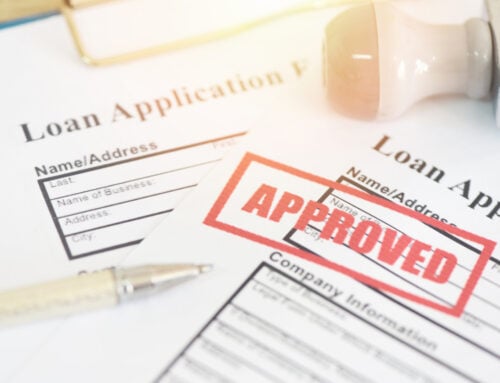There are many loan process steps, each crucial in ensuring a smooth transaction between the borrower and the lender. We aim to demystify the loan processing procedure, making it clear and straightforward. It covers everything from application submission through verification and approval to the disbursal of funds. Understanding these steps will equip potential borrowers with the knowledge they need to navigate the lending process with confidence.
Preparing for the Loan Process Steps
Preparing for loan processing primarily involves gathering the necessary documentation and ensuring your financial status is in good standing. This step starts with an accurate assessment of your financial situation, including your income, assets, and existing debts. Borrowers need to provide proof of income, typically in the form of pay stubs, W-2 forms, or tax returns.
Lenders may also request statements for any assets, such as savings, retirement accounts, or real estate. Additionally, maintaining a strong credit score is crucial as it significantly influences the loan approval decision and the terms of the loan, including the interest rate. A good rule of thumb is to review and correct any errors in your credit report before starting the loan application process.
Application Submission

After ensuring all the necessary documents are in place and your credit standing is favorable, the next step is the actual submission of the loan application. This step typically involves filling out a loan application form, which can be done in person at a lending institution, over the phone, or increasingly commonly, online. The application form will require detailed personal and financial information, including your full legal name, social security number, date of birth, current residential address, employment details, and the specifics of your income and debts. Additionally, the form will ask for the purpose of the loan, the amount you wish to borrow, and your preferred loan terms.
Credit Check and Financial Assessment
Post application submission, the lender conducts a comprehensive credit check and financial assessment. This step involves a deep dive into your credit history, examining the way you’ve handled past debts and financial responsibilities. Lenders typically look at the length of your credit history, types of credit you’ve used, your payment history, and recent inquiries or applications for other lines of credit. They also assess your debt-to-income ratio, which measures the percentage of your monthly income that goes toward paying existing debts.
This process assists lenders in determining your creditworthiness and reliability as a borrower. It’s beneficial to be aware that multiple credit checks within a short duration could negatively affect your credit score, so it’s advisable to manage your loan applications strategically. The information gathered during this assessment will play a significant role in the lending decision, influencing whether your application is approved and if so, what interest rates and terms you are offered.
Property Appraisal
Property appraisal is an essential step in the loan processing journey, especially for loans that require collateral, such as a home mortgage or auto loan. This step involves having a professional appraisal to determine the current market value of the property. The lender typically organizes this, and it is carried out by a licensed appraiser.
The appraiser evaluates the property’s condition, size, location, and comparable properties to estimate its value. It’s crucial to understand that the loan amount cannot exceed the appraised value of the property. The appraisal protects both the borrower and the lender: it prevents the borrower from over-borrowing, which could lead to potential financial strain, and it limits the lender’s risk by ensuring the loan amount is not greater than the property’s worth.
Underwriting
The underwriting stage is where the lender assesses the risk of lending to the borrower. This process is usually carried out by an underwriter, a financial expert who uses the information gathered during the credit check and financial assessment, along with the property appraisal report, to make an informed lending decision. The underwriter will evaluate your ability to repay the loan, the loan-to-value ratio (which is the loan amount in relation to the appraised value of the property), and the potential risk to the lender if you default on the loan. Factors such as your income stability, credit history, and the value of the collateral are taken into account.
Loan Approval and Conditions
After the underwriting process, the loan application reaches the stage of approval. If approved, the lender will provide a loan commitment letter that outlines the terms and conditions of the loan. The letter typically includes information about the loan amount, interest rate, term, payment structure, and any additional charges or fees. It also stipulates any final conditions that must be met before the loan is finalized, often referred to as ‘conditions precedent’.
These might include obtaining necessary insurance, final verification of employment, or further appraisal of the property. Borrowers should thoroughly review and understand all conditions and terms before accepting the loan. If everything is in order, the borrower accepts the conditions, signs the necessary paperwork, and the loan process moves to the disbursement stage.
Closing Process

The closing process, often termed ‘settlement’, marks the final step in the loan application journey. This stage involves a meeting between the borrower, lender, and any other relevant parties, such as a real estate agent or attorney. During this meeting, the final documents are signed, and the loan amount, typically referred to as ‘proceeds’, is disbursed. The borrower will be expected to pay any closing costs, which may include loan origination fees, title insurance, and appraisal fees, among others.
The exact procedures and requirements for the closing process can vary depending on the type of loan and the specific lender’s policies. However, it is essential that the borrower thoroughly reviews and understands all the documentation presented at closing. As soon as the documents are signed, and the closing costs have been paid, the loan process is considered complete. From this point forward, the borrower will need to begin making regular repayments as per the agreed terms and schedule.
Determine the Loan Process Steps
Securing a loan is a multifaceted process that requires careful preparation, understanding, and adherence to several steps. From initial application submission through to the final closing process, each step is crucial in determining the outcome of your loan request. Understanding your creditworthiness, the value of your potential collateral, the risk assessment by the lender, and the terms and conditions associated with your loan approval are all essential aspects of this journey.
Remember, completing the loan process doesn’t mark the end; it’s the beginning of your commitment to repay the loan as per the agreed terms. Being knowledgeable about this process can assist in making informed decisions and setting realistic expectations, making the path to securing a loan smoother and less daunting.
Follow the Loan Process Steps with Union Capital Mortgage
When you’re ready to embark on your loan journey, Union Capital Mortgage is here to guide you every step of the way. With our team of experts, we ensure a smooth and comprehensive process, from initial application to closing. Don’t hesitate to reach out and begin your path toward financial empowerment. Call us at (440) 585-5626 or visit our website to learn more about our loan services. We at Union Capital Mortgage are ready to help you realize your dreams. Let’s make it happen together!
Lets Talk!
Ask us anything – our mortgage loan officers are here to guide you towards the best loan for your lifestyle and financial goals. Give us a call today at 440-585-5626, or fill out our contact form below!






